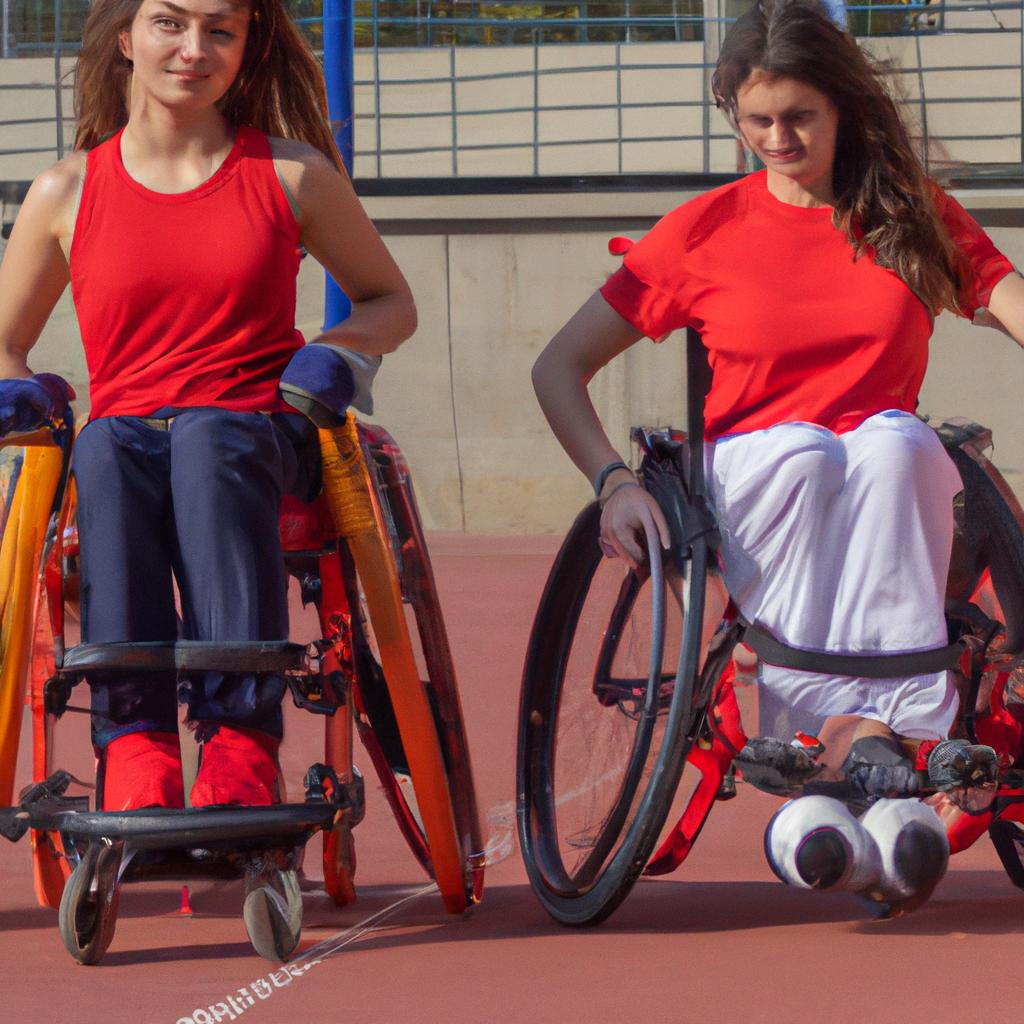**”Adaptive Sports for All: Creating Inclusive Opportunities for Individuals with Diverse Abilities in Competitive Environments”**
# Adaptive Sports for All: Creating Inclusive Opportunities for Individuals with Diverse Abilities in Competitive Environments
Adaptive sports have emerged as a powerful avenue for fostering inclusion, empowerment, and personal growth among individuals with diverse abilities. These activities not only provide a platform for competitive engagement but also promote physical fitness and psychological well-being. The concept of adaptive sports transcends traditional boundaries, allowing people with disabilities to participate in various athletic endeavors, whether through modified equipment or specialized coaching. By creating inclusive opportunities, we can break down barriers and encourage a society where everyone can thrive through sport.
## Understanding Adaptive Sports
### What Are Adaptive Sports?
Adaptive sports are variations of traditional sports that have been modified to accommodate individuals with physical, sensory, or intellectual disabilities. These sports can include wheelchair basketball, adaptive rowing, blind soccer, and more. The objective is to provide equal opportunities for competition, recreation, and personal development, regardless of physical limitations.
### The Importance of Inclusivity
Inclusivity in adaptive sports is crucial not only for the participants but also for the broader community. When individuals with diverse abilities are given the chance to compete, it promotes understanding, acceptance, and respect for differences. Communities become more unified as they come together to support adaptive sports initiatives, creating an environment that values diversity and celebrates everyone’s achievements.
## Nutrition Tips for Adaptive Athletes
Proper nutrition is vital for athletes, especially those participating in adaptive sports. A balanced diet supports optimal performance and recovery. Here are some essential nutrition tips:
1. **Balanced Macronutrients**: Ensure a diet rich in carbohydrates, proteins, and healthy fats. Carbohydrates provide energy, while protein aids in muscle repair and recovery.
2. **Hydration**: Staying hydrated is crucial, especially during physical activity. Drink plenty of water before, during, and after exercise to maintain optimal hydration levels.
3. **Incorporate Nutrient-Dense Foods**: Choose whole grains, fruits, vegetables, lean proteins, and healthy fats to fuel your body effectively. Foods like quinoa, leafy greens, nuts, and fish are excellent choices.
4. **Timing Your Meals**: Consider meal timing around training sessions. Eating a small snack rich in carbohydrates and protein about 30 minutes before exercising can enhance performance.
5. **Consult a Nutritionist**: If possible, work with a nutritionist who specializes in sports nutrition to develop a tailored meal plan that meets your specific needs.
## Exercise Advice for Adaptive Athletes
Engaging in regular physical activity is essential for everyone, including adaptive athletes. Here are some exercise tips to consider:
1. **Choose the Right Activities**: Select sports and exercises that align with your interests and abilities. Whether it’s swimming, basketball, or track and field, finding enjoyment will help maintain motivation.
2. **Focus on Strength and Flexibility**: Incorporate strength training and flexibility exercises into your routine. Strength training can enhance muscle function, while flexibility exercises can improve range of motion and reduce injury risk.
3. **Set Realistic Goals**: Establish achievable and measurable goals. Focus on personal progress rather than comparison to others to foster a positive mindset.
4. **Work with a Coach**: Consider working with a qualified coach who understands adaptive sports. A coach can provide tailored workouts and valuable guidance on technique and form.
5. **Listen to Your Body**: Always pay attention to how your body feels during and after exercise. Rest and recovery are just as important as the workout itself.
## Health Benefits of Adaptive Sports
Engaging in adaptive sports offers numerous health benefits that extend beyond physical fitness. Here are some key advantages:
1. **Improved Physical Health**: Regular participation in adaptive sports can enhance cardiovascular fitness, muscle strength, and flexibility, leading to an overall healthier lifestyle.
2. **Mental Well-Being**: Sports participation has been shown to reduce symptoms of anxiety and depression. The sense of achievement and camaraderie experienced in team settings can significantly boost self-esteem and mental health.
3. **Social Connections**: Adaptive sports provide opportunities for social interaction and teamwork, fostering friendships and support networks among participants.
4. **Enhanced Quality of Life**: Participation in adaptive sports can lead to increased independence, improved mobility, and a greater sense of purpose, all contributing to a better quality of life.
5. **Skill Development**: Individuals can develop valuable life skills, such as resilience, discipline, and teamwork, through their involvement in competitive environments.
## Conclusion
Adaptive sports serve as a vital platform for creating inclusive opportunities for individuals with diverse abilities, offering numerous health benefits while promoting social connections and personal growth. By focusing on proper nutrition, engaging in tailored exercise routines, and fostering a supportive community, we can empower adaptive athletes to thrive in competitive environments. Ultimately, embracing the spirit of inclusivity in sports enriches our society and affirms the belief that everyone, regardless of their abilities, deserves the chance to compete and succeed.















Post Comment